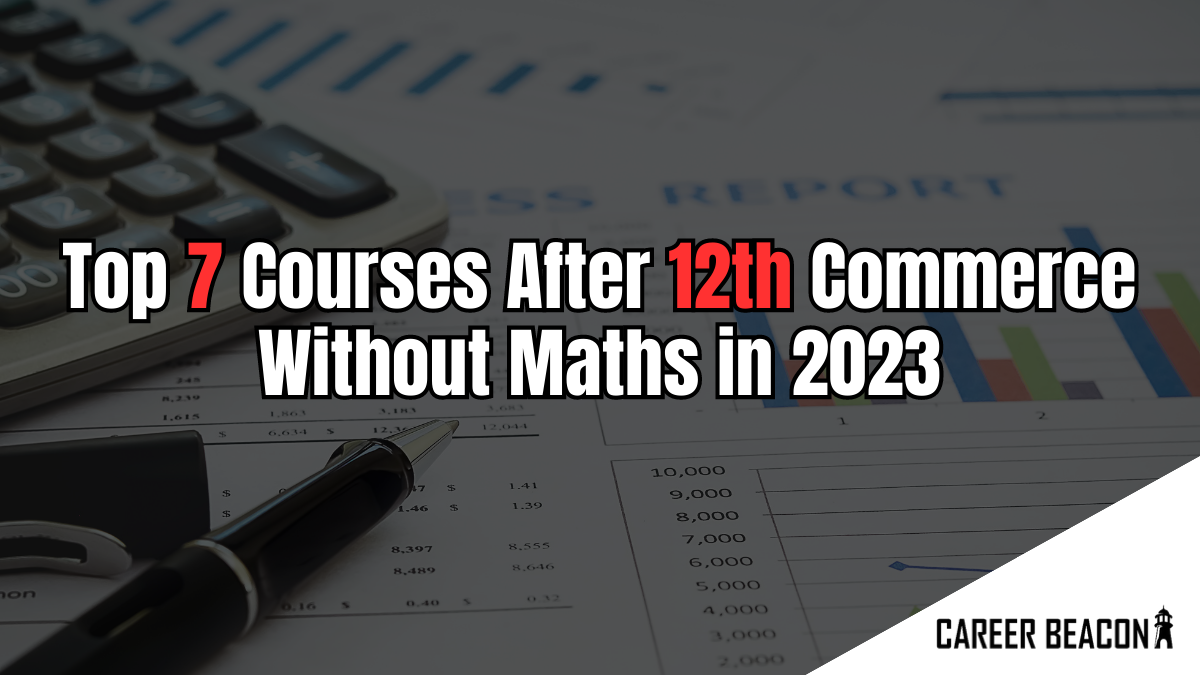
Top 7 Courses After 12th Commerce Without Maths in 2023
This article explores the top 7 courses for students pursuing commerce after 12th grade without studying mathematics.
What is a commerce stream?
The commerce stream provides students with knowledge of various business-related subjects and an in-depth understanding of commerce as a field. It covers topics like accountancy, economics, and business studies, offering students a strong foundation for their future careers.
If you’re interested in pursuing commerce without mathematics, numerous career options are available. Here are the top 7 courses:
B.Com (Bachelor of Commerce)
A three-year degree program that covers finance, accounting, business, and other related subjects. It provides an overview of various fields in commerce and is suitable for students interested in finance, insurance, accounting, and business careers.
B.Com (H) (Bachelor of Commerce Honors)
Similar to B.Com, this degree allows students to specialise in a specific commerce-related subject. Popular specialisations include marketing, finance, economics, accounting, and international business.
BBA (Bachelor of Business Administration)
Ideal for students interested in leadership roles in the corporate sector, BBA covers management, business methods, and related subjects. It serves as a strong foundation for pursuing an MBA in the future.
LLB (Bachelor in Law / Legum Baccalaureus)
For students interested in a legal career, an integrated course such as BA+LLB or BBA+LLB can be pursued. These courses provide knowledge of Indian law, legal practices, and specialization options such as corporate law, criminal law, international law, and more.
CA (Chartered Accountancy)
A highly sought-after career option, CA does not require mathematics in the 12th standard. It involves a three-tier exam and an internship to become a certified Chartered Accountant. CAs are in demand for their expertise in handling financial matters.
CMA (Certified Management Accountancy)
CMA focuses on corporate finance and accounting, requiring a working knowledge of mathematics and accounting expertise. To become a CMA, students need to complete courses and exams conducted by the Institute of Cost Accountants of India.
CS (Company Secretary)
Company Secretaries ensure compliance with regulations and assist boards of directors in understanding legal requirements. Becoming a Company Secretary involves enrolling in courses and exams organised by the Institute of Company Secretaries of India.
By pursuing these courses, students can build rewarding careers in commerce without needing mathematics.

